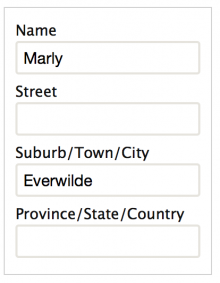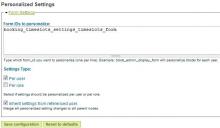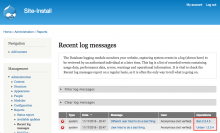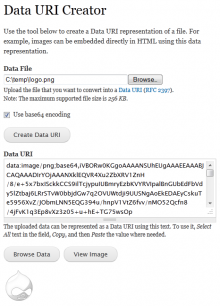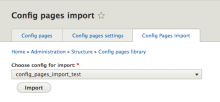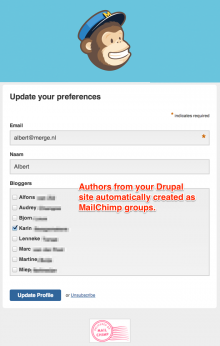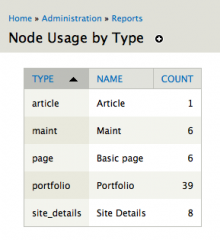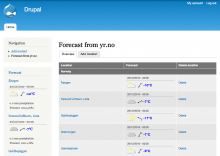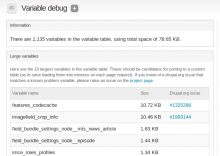Add functionality and customize your Drupal application with thousands of projects contributed by our amazing community.
A module is code that extends Drupal's by altering existing functionality or adding new features. You can use modules contributed by others or create your own. Learn more about creating and using Drupal modules.
This module shows how modules can be enhanced by or enhance other modules by using information provided in module .info files (implementation of #328932: Modules and partial dependencies - enhances[] and enhancedby[] field in modules' .info.yml files).
The following are all the supported directives:
dependencies[] = modulename
recommends[] = modulename
suggests[] = modulename
enhances[] = modulename
breaks[] = modulename
conflicts[] = modulename
replaces[] = modulename
supports[] = modulename
This information will most likely be used on the redesigned drupal.org, so start implementing this now in your own modules!
Summary
This module links Webforms on your site with a RT installation. Field keys are sent to RT in the body of the ticket, along with their corresponding values.
Features
Custom Fields are supported. when creating the Webform Component, set the field key to be "cf_" and the input from this field will be passed to RT as a custom field.
Emergencies are supported as well. If you create a select field with the key "emergency" and the options Yes/No, an email will be dispatched from RT to the email configured in the module settings page to notify an administrator that an emergency request has been sent in.
Desired Completion Date can be set using a field "desired_completion_date" that takes a Date. This will set the due date of the RT ticket that is created.
Requests On Behalf Of a person can be made by entering that persons email into a field with the key "on_behalf_of". This will then set the Ticket title to be "Request from ".
Usage
To use this module, download and install it, and then proceed to the "Webform to RT Module Settings" link in your admin menu header. Fill in the required fields, and then you are ready to start creating forms.
Allows a node to generate a password for itself that users must enter into their profile to be able to see that node.
The idea is that someone who has access to the node anyway (e.g., because of their user role) will be shown the password which they can then give to somebody else in person.
ThemeKey Properties provides additional properties for use with the ThemeKey module.
This module auto-converts form input fields with space-hogging labels into compact mobile-friendly input fields, with placeholders that animate into much smaller labels the moment text is keyed in.
This module enables you to easily configure DFP Small Business (formerly Google Ad Manager) Ad Slots for Drupal.
It's a powerful module which enhance other modules functionality by personalizing form settings provided by them per user or per role.
The Data URI Creator is a lightweight standalone module that implements a utility page for manual generation of Data URIs (see RFC 2397: The "data" URL scheme). The tool can be particularly useful when you craft HTML pages, CSS or JSON data by hand and want to embed images directly in the content, as opposed to indirectly through a link to a separate image file.
The module also provides a lean API that can be used programmatically to detect, encode and decode Data URIs (through the DataUriCreator class). Therefore, other modules that work with Data URIs can reference the Data URI Creator module as a common API to perform encoding and decoding of such URIs.
Backup Client-Server is a set of modules that allow for the backup and monitoring of a single or multiple Drupal websites.
Extends the oauth2_client module to offer more flexibility, and easier access through the Drupal 7 dependency injection container, service_container.
This module allows you to redirect visitors based upon the country they are visiting from. It uses the freegeoip.net service to detect the visitor's location, and then various options may be used to redirect the visitor to another page.
Proper site development practices involves one ore more development environment, at least one production server, and perhaps a staging server for teams and clients to interact on code & design
UC Node Access lets you attach Node access features to products in your Ubercart store. These features allow customers who purchase the product to receive view access to nodes on your site either indefinitely or for a limited time based on the feature's settings. UC Node Access does not handle access grants itself but rather depends on other modules to define handlers that integrate UC Node Access with the various node access modules developed for Drupal.
Currently integrated node access modules include:
- ACL + Content Access - adds the customer's user account to the ACL defined by Content Access and adds expiration information beside the names in the Grant view access fieldset of the Access control tab for nodes governed by Content Access.
This module provides a Feeds Fetcher plugin that consumes web services, and a mapper+processor that helps translate the responses into Feeds-compatible Drupal data.
It extends the Feeds project and integrates the Web Services Client tool to fetch the source data.
Quickstart
* Set up a web service connector to something that sends you information, eg a SOAP lookup
* Create a feed importer that uses a web service operation as a 'Fetcher'
* Map the values returned to your target content type. The available source fields should be auto-detected from the Web Service schema.
Are you a module developer and use config entities? Are you too lazy to write code for your config forms? Import your config entity schemas into config_pages by two lines!
$import = \Drupal::service('config_pages_import');
$import->import('config_entity_name');
By enabling this module, routes can be rendered in PDF format. It works under the hood leveraging the module entity_print.
Chat with your website visitors using your Instant Messenger client for free.
Overview
This module allows anonymous visitors to subscribe to new content on your site of specific authors. The notifications are email sent by MailChimp and you can configure which users (by role) and which content-types apply. You can also customize the mail body using tokens available for the specific nodes.
Please note that this is still a sandbox project and may not be production ready.
Features
This module provides a block with a simple form which should be placed on a full node. By submitting his name and email on this page, the user will automatically be added to a MailChimp list and group. Each author which can be subscribed to this way will be automatically created as a MailChimp group in one specific list.
In the current version, an email (campaign) is immediately created and sent when a node is published. The publication_date module is used to assure that a mailing for a newly published node is sent only once.
People can also easily manage their "subscriptions" through the MailChimp interface. No database tables are created with this module, and their are no permissions associated with this module.
This is a simple module to report which custom content types exist, and the count of usage for each one.
Features
The module provides a way to disable some hooks for specific modules via the
settings.php. So defaults of views or panels can be removed and can be exported
Com2vb integrates commenting system of Drupal with powerful forum vBulletin. Com2vb store comments in vBulletin’s database. So it’s available to comment materials of site in both places – in Drupal and vBulletin. With creating of first comment module create a “start post” in forum with link to material. All of comments are readable in Drupal and vBulletin.
Com2vb provide limited integration of users – authors of comments are linked with cross table.
From version 3-x COM2VB have some features for linking of users in both databases:
- linking of user's accounts in Drupal and vBulletin;
- automatic registration of new users from Drupal in vBulletin;
- synchronizing of user's name, E-mail, password from Drupal to vBulletin;
- increasing post's counter of user in vBulletin with comments in Drupal;
- shared login and logoff in vBulletin with the same actions in Drupal;
- shared activating/deactivating accounts from Drupal.
Also module provides some blocks:
- fully standart for COMMENT module block "Recent comments" with number of comments setting;
- Last replies in forum;
- Top posters in forum;
- Users in forum online;
- Hot topics.
For correct displaying of comments you must add Bbcode module.
Yr Weatherdata collects weather forecast from Yr.no, a free, online weather service operated by the Norwegian Meteorological Institute and Norwegian Broadcasting Corporation.
Features
- More than 7 million locations to choose from
- Configurable with different units for displaying temperature, wind speed, pressure etc.
- Many different blocks and pages available to display the forecast
- Plenty of theme hooks available for customization
#D7AX: I pledge to make this module as accessible as it can be. If you find any flaws, please submit an issue. Help me fix them if you can.
#D7CX: Yr Weatherdata 7.x-1.0 was released the same day as Drupal 7!
Overview
This is a development helper module that enables your developers to see:
Pages
 Support for Drupal 7 is ending on 5 January 2025—it’s time to migrate to Drupal 10! Learn about the many benefits of Drupal 10 and find migration tools in our resource center.
Support for Drupal 7 is ending on 5 January 2025—it’s time to migrate to Drupal 10! Learn about the many benefits of Drupal 10 and find migration tools in our resource center.
